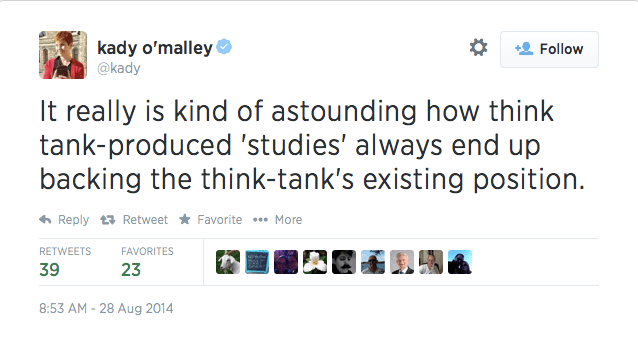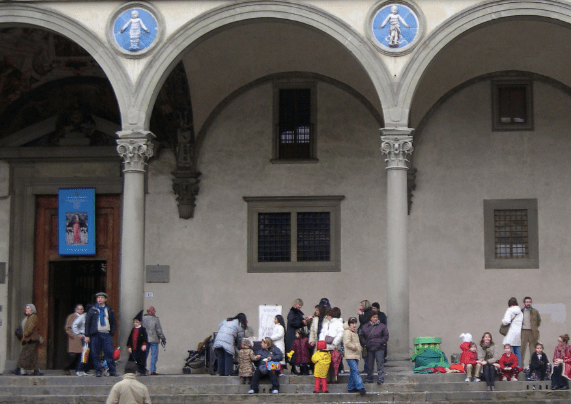It is sometimes said that think tanks are good for democracy; indeed the more of them, the better. If there are more ideas in the public arena battling it out for your approval, then it’s more likely that the best idea will win, and that we will all have better public policies. But intuitively many of us have trouble believing this, have trouble knowing who is being truthful, and don’t know who to trust.
This battle of ideas, studies, and statistics has the potential to make many of us cynical about the whole process, and less trusting of all research and numbers. If a knowledgeable journalist like the Canadian Kady O’Malley expresses a certain exasperation that think-tank studies always back up “the think-tank’s existing position,” what hope is there for the rest of us? A flourishing of think tanks just let’s politicians off the hook, always allowing them to pluck an idea that suits their purposes, and making it easier to justify what they wanted to do anyways.
Maybe we shouldn’t be so surprised that think tanks produce studies confirming their (sometimes hidden) biases. After all this is something we all do. We need to arm ourselves with this self-awareness. If we do, then we can also be more aware of the things in a think tank’s make-up that can help in judging its credibility, and also how public policy discussion should be structured to help promote a sincere exchange of facts and ideas.



